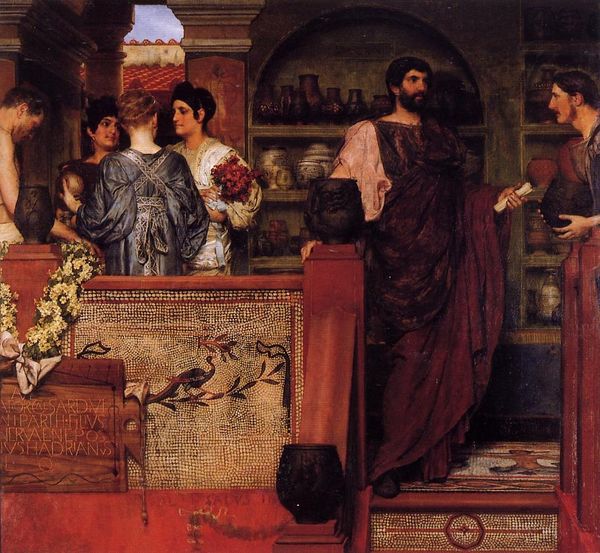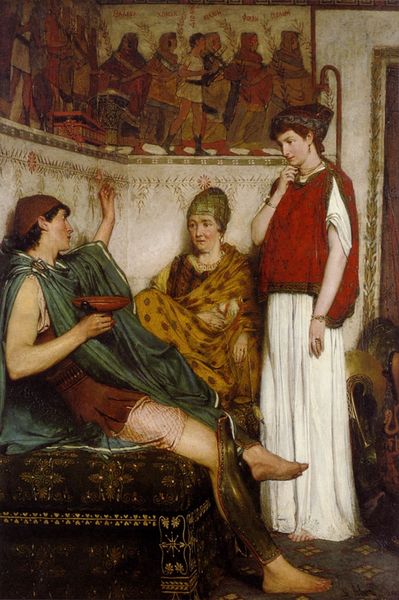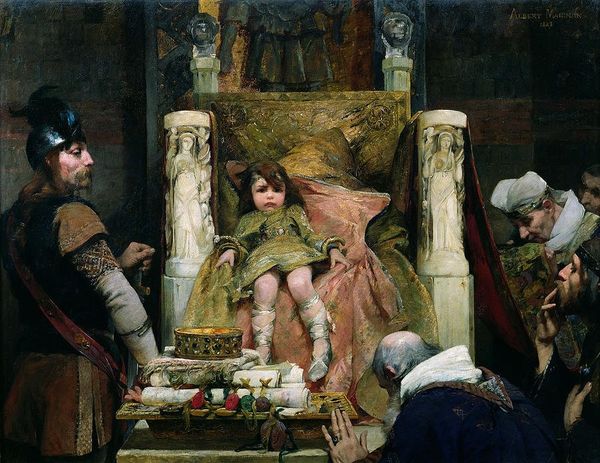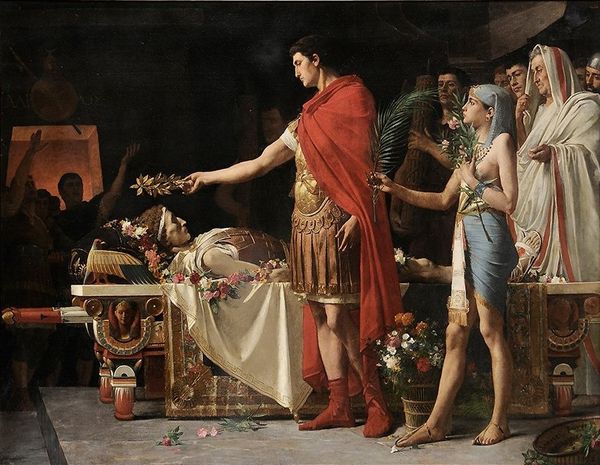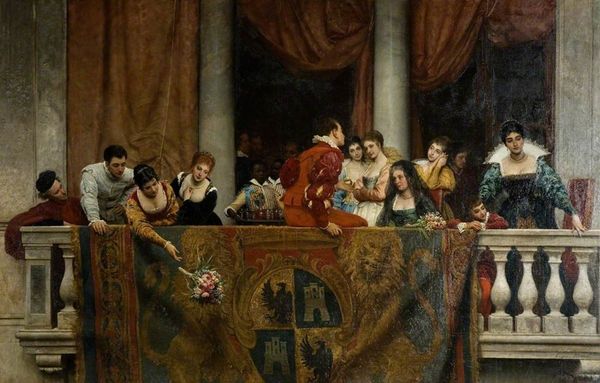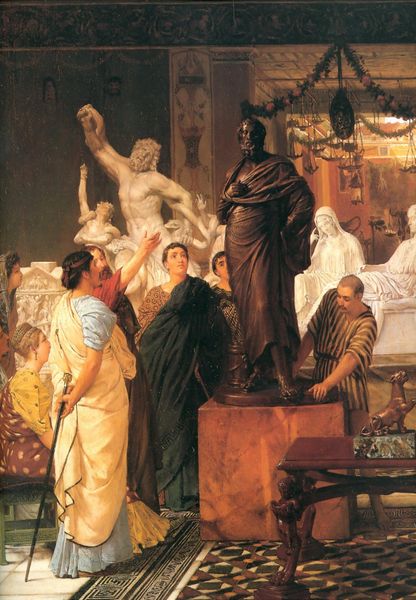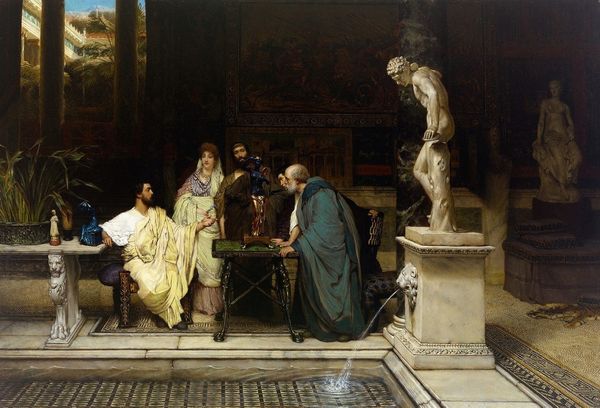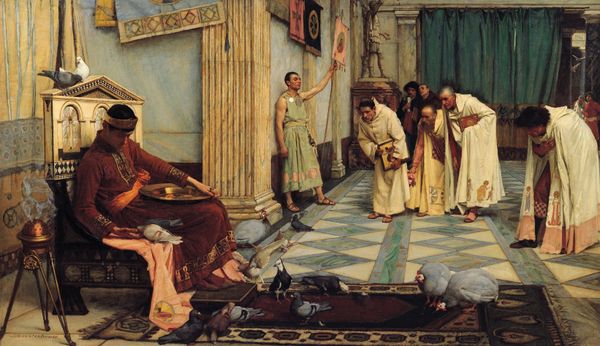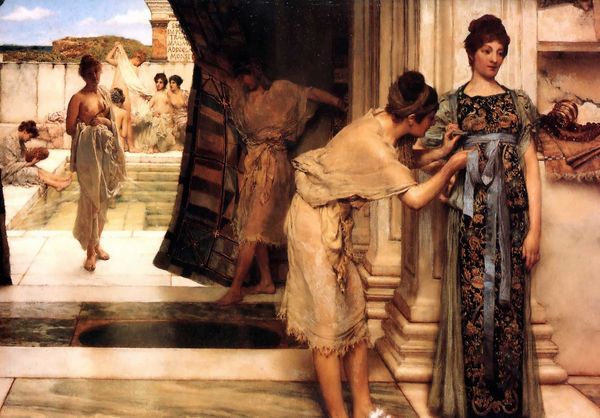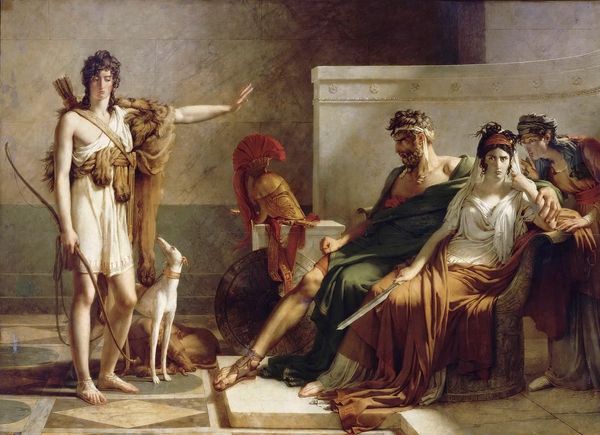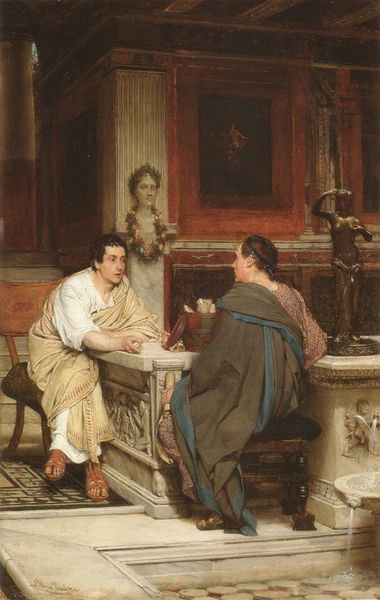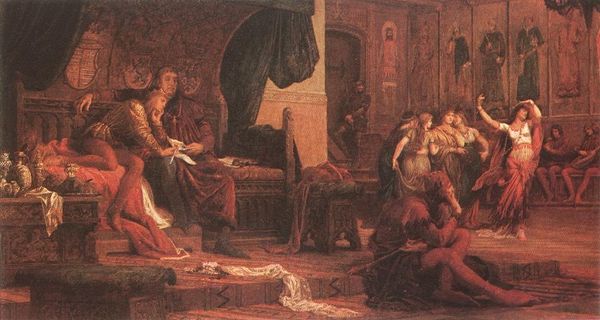
#
portrait subject
#
oil painting
#
portrait reference
#
portrait head and shoulder
#
edgy portrait
#
facial portrait
#
portrait art
#
fine art portrait
#
celebrity portrait
#
digital portrait
Copyright: Public domain
Curator: Lawrence Alma-Tadema's oil on canvas, "Catullus at Lesbia's house," completed in 1865, offers a glimpse into a domestic scene of Roman antiquity. Editor: The somber mood of this piece struck me immediately, almost as if secrets are lurking behind every carefully arranged drape. The limited color palette seems to reinforce a restrained atmosphere. Curator: The emotional tone seems consistent with the literary sources. Look how Tadema uses the architectural details—the precisely rendered marble floors, the columns—to create a rigid framework within which these intimate human dramas unfold. Editor: And look closer at Lesbia. Her slight smirk contrasts sharply with the melancholy air, wouldn’t you agree? Her symbols speak volumes – is the artist attempting to convey some warning with the objects included on the table or background statues? Curator: Symbolism aside, note how the light falls unevenly, casting shadows that partially obscure some faces while illuminating others. That compositional strategy enhances the tension. The focal point lies just off-center, guided by that intense use of color. Editor: Perhaps the shadows allude to the darker, hidden aspects of their relationships, secrets amongst the privileged. And that statue is meant to signify what, perhaps some ancient god connected with love, art or even deception? Curator: Perhaps it points to a complex set of social power dynamics. Even something as seemingly simple as the arrangement of the figures contributes, with Catullus elevated physically and dominating through vibrant colors. The other are a monochromatic muted shade. Editor: Interesting. And from that view, it is that arrangement – not to mention the way Tadema emphasizes luxurious texture -- that keeps pulling my eye back. What story will each viewer imagine? Curator: In its subtle interplay of structure and color, Tadema's painting achieves a depth that goes beyond mere historical illustration. It forces us to ask, how has love changed in over 2000 years. Editor: I leave with more questions, inspired and disturbed, by the painting's intricate layering of coded hints and symbolic messages. I would agree that art is here functioning on the subconscious mind.
Comments
No comments
Be the first to comment and join the conversation on the ultimate creative platform.
